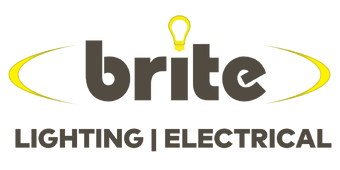
How Does Loadshedding Damage My Appliances & What Can I Do to Prevent It?
Loadshedding is a common occurrence in South Africa, where Eskom temporarily cuts power to specific areas to balance the power grid during peak usage times. Now, we all know that load shedding can have negative effects on your appliances and most of us have probably suffered the loss of household appliances due to loadshedding by now.
Since insurance companies are now excluding loadshedding damages from claims, we’ve decided to discuss how loadshedding can damage your appliances and what you can do to prevent it.
How Does Loadshedding Damage Appliances?
Loadshedding can cause damage to your appliances in a few ways. The sudden power cuts can cause voltage fluctuations and surges, which can damage sensitive electronic components in your appliances. When power is restored, there can be a surge of electricity that can overload your appliances and cause damage to them.
In addition, loadshedding can cause interruptions in power, which can lead to problems with appliances that rely on a continuous power supply, such as computers or refrigerators.
What Appliances Are At Risk Of Damaging Because Of Loadshedding?
All appliances can be at risk during loadshedding, but some are more vulnerable than others. Appliances that are particularly sensitive to voltage fluctuations and surges, such as computers, televisions, and other electronics, are at higher risk of damage.
Appliances that rely on a continuous power supply, such as refrigerators, air conditioners, and water pumps, are also at risk during loadshedding. These appliances can suffer damage or malfunction if the power supply is interrupted for too long.
How Can I Protect My Appliances During Loadshedding?
There are several steps you can take to protect your appliances during loadshedding:
- Unplug sensitive electronics: To protect sensitive electronics such as computers, televisions, and audio equipment, it's best to unplug them during loadshedding. This will prevent voltage fluctuations and surges from causing damage to the electronic components.
- Use surge protectors: Surge protectors are devices that are designed to protect your appliances from voltage fluctuations and surges. By using surge protectors, you can protect your appliances from damage when the power returns after loadshedding.
- Invest in a backup power supply: Investing in a backup power supply, such as a generator or an uninterruptible power supply (UPS), can help protect your appliances with power cuts. A backup power supply or UPS can provide a continuous power supply to your appliances, when power is turned off, without interrupting the functioning of the appliance. A generator, whether programmed to turn on automatically or if you have to turn it on manually, will interrupt the power supply temporarily, but will re-power the appliance once running.
- Turn off appliances during loadshedding: To protect your appliances from power interruptions, it's best to turn them off during loadshedding. This will prevent any sudden surges of electricity from damaging your appliances when power is restored.
More Information About Appliance Surge Protectors
When a voltage surge occurs, the surge protector detects the excess voltage and diverts it away from your appliances. This is done by directing the excess voltage through a metal oxide varistor (MOV) or similar component that is designed to absorb the voltage. The MOV is connected between the power source and the appliances, and acts like a safety valve, absorbing excess voltage and preventing it from reaching your appliances.
Some surge protectors also include other features, such as thermal fuses and circuit breakers, to provide additional protection. A thermal fuse is a safety device that interrupts the flow of electricity when the temperature exceeds a certain limit. A circuit breaker, on the other hand, is designed to automatically shut off the power when an electrical overload is detected.
Surge protectors can be used for a variety of appliances and electronics, including computers, televisions, audio equipment, and other sensitive electronics. They come in various sizes and capacities, so it's important to choose a surge protector that is appropriate for the devices you want to protect.
It's worth noting that surge protectors can wear out over time and become less effective, so it's important to replace them periodically. It's also important to note that surge protectors are not a guarantee against damage from voltage spikes and surges, but they can provide an additional layer of protection for your appliances and electronics.
How Brite Lighting & Electrical Can Help You to Safeguard Your Appliances
Brite offers a wide range of products that can help protect your appliances. Have a look at some of our solutions below.
Loadshedding can have negative effects on your appliances, but there are steps you can take to protect them. By unplugging sensitive electronics, using surge protectors, investing in a backup power supply and turning off appliances during loadshedding, you can reduce the risk of damage and ensure that your appliances continue to function properly.
With these tips, you can protect your appliances and minimise the impact of loadshedding on your home.
